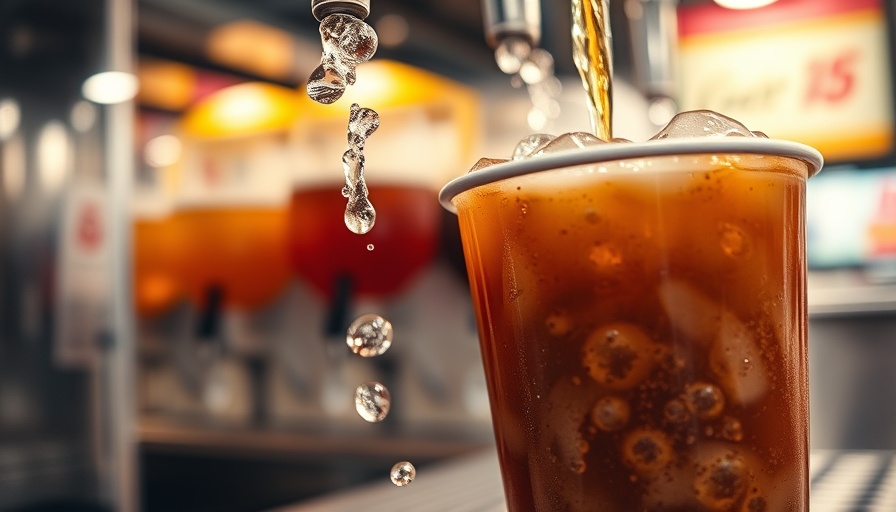
Diet Drinks May Be More Harmful Than We Thought
The latest findings from a study presented at the United European Gastroenterology Week in Berlin have shifted our understanding of diet drinks and their impact on liver health. Contrary to the common perception that these artificially sweetened beverages are a healthier alternative to sugary sodas, this research indicates they might pose a greater risk to liver health than previously believed.
A Closer Look at the Study
Researchers analyzed data from over 120,000 adults in the UK Biobank, a comprehensive health resource. None of the participants had liver disease at the beginning of the study. Over a decade, the scientists tracked the beverage consumption of these individuals and assessed their liver health. Findings revealed that those drinking diet drinks had a 60% higher risk of developing metabolic dysfunction-associated steatotic liver disease (MASLD), a serious condition previously known as nonalcoholic fatty liver disease.
Understanding the Risks
In parallel, individuals consuming sugar-sweetened beverages (SSBs) faced about a 50% higher risk for the same liver condition. However, neither switching from regular soda to diet soda nor between different sugarless options yielded any risk reduction. Astonishingly, substituting either type with water led to a reduction of 15% in liver disease risk.
What is MASLD?
Metabolic dysfunction-associated steatotic liver disease is characterized by the accumulation of excess fat in the liver, which can lead to inflammation and severe damage over time. Approximately 30% of adults globally may be affected by this condition, encompassing a range of metabolic disorders. Understanding the dietary factors contributing to MASLD is crucial for addressing this growing health concern.
Why Do Diet Drinks Pose Higher Risks?
While the link between sugary drinks and obesity or other metabolic disorders is well established, the precise reasons why diet drinks -- which lack sugar -- also contribute to liver disease remain partially elusive. Some experts believe that the artificial sweeteners used in diet drinks might alter the gut microbiome, disrupt hunger cues, or maintain cravings for unhealthy foods, thereby increasing overall caloric intake.
Moving Forward: Practical Implications
Considering these findings, individuals may want to rethink their beverage choices. Limiting the intake of both sugary and artificially sweetened drinks appears to be a prudent strategy for maintaining liver health. Choosing water, herbal teas, or unsweetened beverages over diet sodas could be a meaningful step towards better metabolic health.
Expert Opinions: A Growing Concern
Lihe Liu, the lead author of the study, emphasized the importance of these findings. “These results challenge the common assumption that diet drinks are harmless and prompt a reassessment of their role in ensuring healthy diets and optimal liver function,” she stated. Several medical professionals echo this sentiment, urging individuals to consider the long-term implications of their beverage choices.
The Bottom Line: Prioritize Health Over Myths
As the research surrounding diet and metabolic health evolves, it is essential for consumers to stay informed. Shifting away from both sugary and artificially sweetened drinks not only lessens the risk of MASLD but also promotes overall wellbeing. The transition to healthier hydration choices marks an effective strategy not only for liver health but for improving metabolic health as a whole.
If you're looking for healthier drink options, consider reaching for water, herbal teas, or similar choices that are known to support good health without added risks. Making small, mindful changes can yield significant health benefits over time.
 Add Element
Add Element  Add Row
Add Row 



Write A Comment